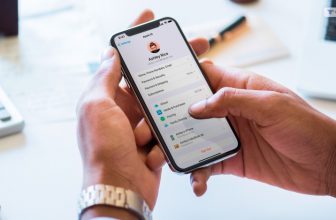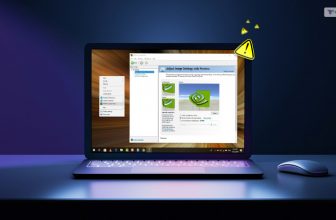
Cyber security services were once something everyone else sympathized with businesses. After all, besides sporadic credit cards or other fraud and theft that befell individuals online. Cyberattacks were mostly a business concern, sitting as business was on reams of data and a far bigger cash box in most cases. For a number of reasons, Cybersecurity trends are changing the world.
The past few years have seen many leading business organizations employ the services of a cybersecurity company. Given the nature of the threats and how advanced they have become especially in the post-COVID-19 phase, it is important to protect your online presence at all costs. The slightest breach can result in loss of credibility, data and financial details of the organization. This might lead to huge financial losses and even end up being the reason for the company’s closure. Working with trained, certified and experienced cybersecurity professionals can help thwart any attacks.
There hasn’t been a flurry of enhanced attack tools or a renewed drive to target individuals. But when increasingly more infrastructure around the world is being moved to greater automation and interconnectedness.
The implications for the public begin to mount. The open secret of international espionage has become a mainstream reality. Further funding and enabling precisely those agents who would look to government installations for profit or sabotage. State-sanctioned cyberattacks, divergent methodologies, and a lack of cybersecurity pros in the world of employment are all contributing to a sticky moment in online life.
As welcome as the ease of use and facilitation of modern tech might be. It is as readily welcomed by the criminal fraternity too. That means cybersecurity trends are unlikely to get to a point of watertight effectiveness any time soon. The looming IoT and increasingly connected electronic lives the world’s citizens live is a lure to cybercriminals who constantly test the matrix to determine weaknesses. Whatever hacking successes government agencies might record, will surely filter down into common knowledge in the black hat fraternity.
Security in 2021 needs to tighten, not slack off.
Cybersecurity needs to be sophisticated, vigilant in 2021
According to experts at leading cyber security firms, in the last few years, there have been advancements in terms of the way criminals are breaching the defenses of businesses. This has increased ever since the pandemic hit. If studies are to be believed, cyberattacks have increased by over 3x times from pre-pandemic levels. It is only by working with specialized cyber security firms that businesses can expect complete protection and peace of mind.
You should never discount the ability of cybercriminals as far as technological advancements are concerned. Everything that is connected to the internet can be used as a medium to swoop and spy on you. We all know how dependent we have become on our smart phones. What we do not know is that it is one of the most hacked and infiltrated pieces of technology that we use in our everyday lives. This is why professionals suggest that if one is concerned about smart phone security and snooping, then they should start using a sky ecc phone. This has end-to-end encryption along with an entire suite of personal protective tools and software.
AI will become an integral part of cybersecurity trends over the next two years. Much as in any pursuit, where AI can take up and improve upon the performance of any mundane monitoring, collecting, or sorting work, it’s going to be applied to online security, too. Unfortunately, the criminal fraternity is just as likely to employ it as any of the legitimate developers.
Companies engaged in IT services offered in London, New York, Tokyo and almost every other major capital of the world are reporting the increasing use of AI put to work for criminal intent. Indeed, although there has been no single, big breakthrough for the criminal fraternity, the IoT alongside steady AI development does present a potential, incredibly fertile landscape for fraudulent activity.
Most of the news around AI in enterprise security is positive, showing AI contributing to online security, but the same tools are available to everyone. This allows for a well-funded, constantly evolving dark application of AI, reducing the innate value AI brings to global business.
The hostile 2019 stance of the US government towards allowing Chinese Huawei to roll out its 5G tech across the American landscape is indicative of the level of compromise modern technology carries within it as a political potential. While each side sticks to their guns. The non-partisan criminal community sees only a divided world unable to regulate.
Read also: Cyber Attack – Important ways to improve cyber security
Cybersecurity often means thwarting fake news too
Although still more of a political concern than an enterprise challenge. Fake news or other propaganda that serves a particular agenda has become commonplace in 2021. A worrisome product of social media uptake and overall connectivity. Fake news and other manipulations targeting national elections in a country now seem entrenched as a strategy going forward. Leaked emails, false claims, and genuinely damaging revelations from hacked data can plague any modern politician or political party.
Both Google and Facebook have spent a lot of time and money developing technology. That can determine whether political messaging or other narratives constitute fake news or not. These companies are not doing this for any other reason than the fact that these tactics now seem to be acceptable practices in global relations. And the fact that the anonymous and remote nature of such interference requires a sophisticated response.
Perhaps most troubling, is the fact that cybersecurity hiring is lagging. Several million cybersecurity positions will remain unfilled in 2021, and for a number of nuanced reasons, this is a dearth that will have an unavoidable knock-on effect into 2021 and beyond. The good guys are thin on the ground, and the bad guys know it.
Personal Items Like Self-driven Cars Will Become The New Cybersecurity Trends Frontier
Hot on the heels of self-driving cars and Facial Recognition in cell phones, comes the criminal fraternity. Cyber crooks know they can push open a back door into greater data value by hacking a phone or car. Email addresses, contacts, and a host of other sensitive intel can be hacked from the onboard system. And GPS, a myriad of sensors, and a host of communication platforms make modern hi-tech cars an ideal entry point for hackers.
Criminals will piggyback on connected, “softer” items in a person’s possession in order to come up through the bottom end and access sensitive data. If it sounds so simple, it’s because it very often is. The Amazon Ring Doorbell’s value has been all but drowned out by the chorus of videos. Showing successful hacks that come right inside people’s homes. Very regrettably, although largely still unavoidable. The thousands of contributing individual developers and manufacturers lack a security standard intrinsic to the millions of devices.
Although likely to be a point of focus and resolution very shortly. Currently, a host of varying and often mutually ineffective protocols are in play in millions of devices. The IoT is destined to first be a mess, and then a streamlined reality, at least in terms of secure access.
Staying ahead of the curve will be a challenge. Something automakers are fully aware of as they automate the cars of the future. Protecting data and IP as an enterprise will be no less challenging. As each new turn in the road throws up a new combination, result, or opportunity for criminals to ply their trade. Successful companies will be proactive around AI and its implications for cybersecurity trends. While also doubling down on existing protocols, seeking to establish and maintain a common standard across all user devices.






